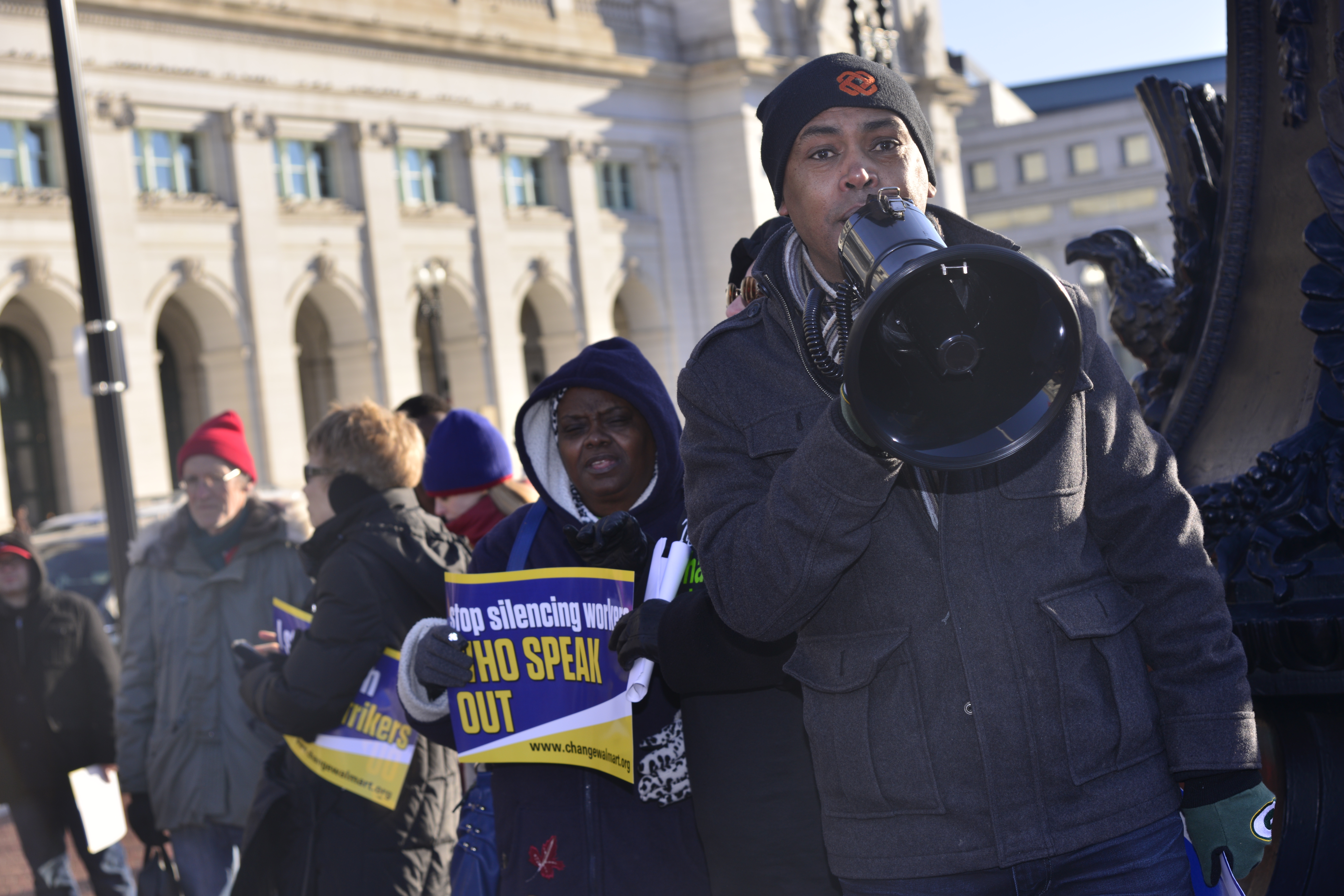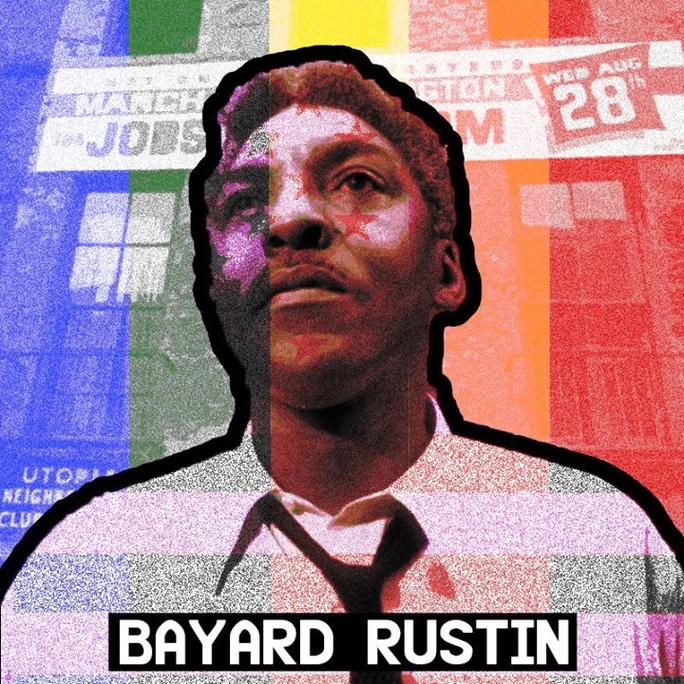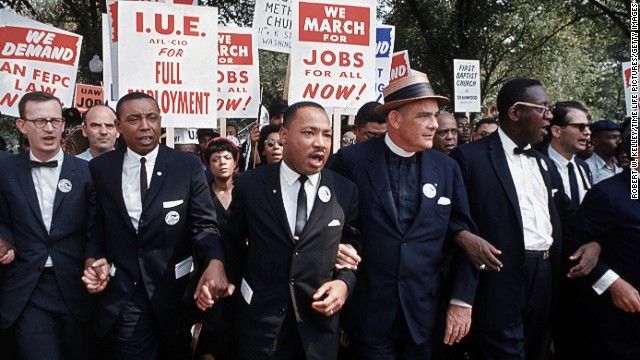February 11, 2015
AFL-CIO Executive Vice President Tefere Gebre Honors the African-American Labor Leaders Who Have Inspired Him in His Work
Reposted from Huffington Post
By Tefere Gebre:
Every February, people across the country celebrate Black History Month. We honor the heritage and struggle of African-Americans in the United States while looking with hope towards the future. This year, I am honored to look back at organizers and activists who inspire me daily in my work as a leader in the labor movement. The history of the modern labor movement, which is positioned to speak, fight, and win on behalf of all workers, is filled with strong black figures who fought for civil and economic justice during a time when justice was not guaranteed for all.
When I arrived in the United States at the age of 15 as a refugee of war-torn Ethiopia, I struggled to take care of myself financially while also trying to focus on my academics. When I started college at Cal Poly Pomona on an athletic scholarship, I also got a job as a night shift loader for UPS as a member of Teamsters Local 396. UPS was my first union job and it opened my eyes to the world of labor and all of the trailblazing African-American organizers who had come before me.
People like Bayard Rustin who persevered in the face of threats and violence in his efforts to organize workers on behalf of the trade unionists. Despite enduring multiple arrests and beatings, Rustin continued in his work and went on to help organize the March on Washington for Jobs and Freedom alongside A. Philip Randolph, another great African-American labor leader. The March on Washington was the largest demonstration the United States had ever seen, bringing together hundreds of people in the struggle for better jobs and better lives.
Thanks to the work of activists like Rustin and Randolph, all African-Americans have moved closer to achieving the goals of justice and equality set forth by the civil rights movement. Rustin and Randolph are important examples of the positive role unions and collective action play in the African-American struggle for economic justice. Today, African-American union members earn 28 percent more than our non-union peers and are far more likely to have good benefits that help us raise families. But there is still work to be done.
Now more than ever, the struggle for civil rights must include good jobs that raise wages and an economy that works for all. Without good jobs, there is no real freedom. While African-American union members are weathering the economic downturn with the aid of collective bargaining, our non-union brothers and sisters are suffering. Today African-Americans have a 10.4 percent rate of unemployment in the United States compared to a 4.8 percent rate for white Americans.
It’s time for the next generation of leaders to take up the torch and work on behalf of all workers. I am grateful for the inspiration that past African-American leaders have left behind for me. This proud legacy continues to motivate fellow activists who are fighting for justice today. Let’s get to work and make them proud.
February 10, 2015
Show Your Fellow Union Members Some Love By Having a Union-Made Valentine’s Day
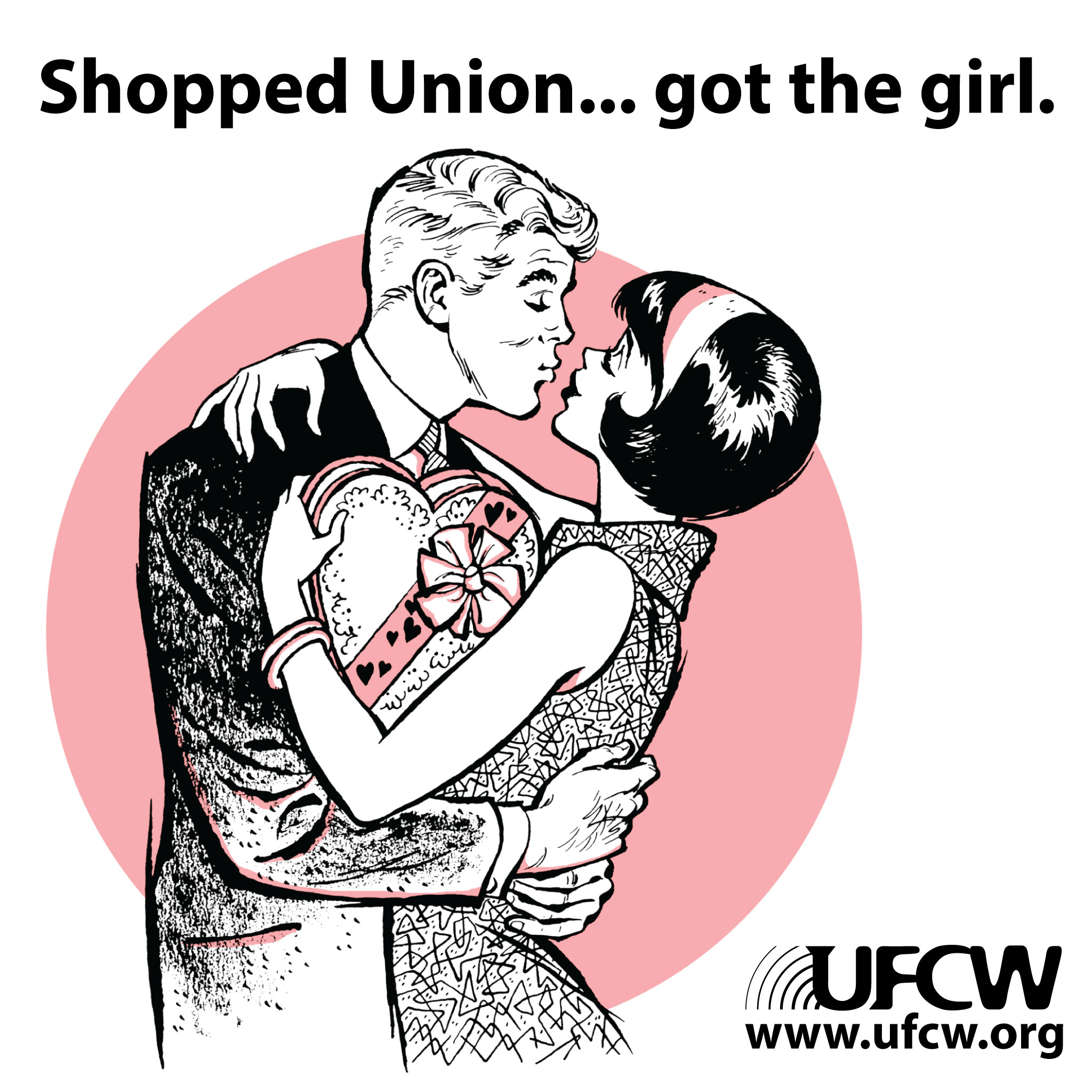 Whether you want to give your special valentine a sweet treat, find a great Valentine’s day gift for your best friend, or even satisfy your own sweet tooth this Valentine’s Day, show the hardworking men and women of the UFCW some love and support by shopping for union-made goods, or purchasing items from your favorite local union shop. We’ve provided a list of UFCW-made items below to make buying something for your sweetheart easy! You can also save 25% on Teleflora flowers and gift baskets when you use your Union Plus discount.
Whether you want to give your special valentine a sweet treat, find a great Valentine’s day gift for your best friend, or even satisfy your own sweet tooth this Valentine’s Day, show the hardworking men and women of the UFCW some love and support by shopping for union-made goods, or purchasing items from your favorite local union shop. We’ve provided a list of UFCW-made items below to make buying something for your sweetheart easy! You can also save 25% on Teleflora flowers and gift baskets when you use your Union Plus discount.
Chocolate:
- Ghirardelli chocolates
- Baby Ruth bars
- Hershey’s
- KitKats
Candy:
- Smarties
Beverages:
- Andre champagne
- Arbor Mist
- C.K Mondavi Pinot Grigio
- Turning Leaf Chardonnay
February 9, 2015
UFCW Celebrates Black History Month: Bayard Rustin–An Overlooked Champion of Civil and Labor Rights
One of the greatest moments of the Civil Rights era was the March on Washington in 1963–one of the largest non-violent protests to ever occur in America. The March on Washington brought thousands of people of all races together, in the name of equal rights for everyone–whether they were black or white, rich or poor, Muslim or Christian. Dr. Marin Luther King, Jr. made one of his most inspiring and famous speeches at the march, which culminated on the National mall.
But history has often overlooked the man who was the driving force behind this monumental event–a man named Bayard Rustin. Rustin was the one who organized the march, bringing methods used by Gandhi as well as the Quaker religion to Washington to ensure peace, but also impact. It was Rustin who helped shape Dr. King into the iconic symbol of peace he is remembered as.
As a young adult, Rustin worked with many kinds of people who influenced his activism, including ministers and labor organizers. During World War II, Rustin fought against racial discrimination in war-related hiring, and was later jailed for two years after refusing to enter the draft. Then, after protesting segregated transit systems, he was sentenced to work on a chain gang for several weeks.
Despite being punished for his beliefs, Rustin continued to work towards changing things for the better. In 1953, Bayard Rustin arrived in Montgomery, Alabama to partake in the famous bus boycott that kicked off after Rosa Parks was arrested after refusing to give up her seat on the bus for a white man. The boycott brought many civil rights leaders to the area, including a young Dr. Martin Luther King, who had not yet embraced non-violence. But Rustin taught many who were partaking in the boycott how Gandhi had used peaceful tactics to bring change in India, and people saw the importance of these tactics, and began to embrace them, focusing on direct protest.
Rustin was also a champion of workers rights. In 1965, Rustin and his mentor A. Philip Randolph co-founded the A. Philip Randolph Institute, a labor organization for African-American trade union members. Much of his work emphasized that labor rights were an integral part of the civil rights movement.
Although Bayard Rustin was a tireless activist, his life achievements are unknown to many, and he has even been called the “lost prophet” of the civil rights movement. This is largely because not only was Rustin silenced and threatened like many others were for being a black man speaking out for equal rights, but also because he was openly gay in a time when homophobia and bigotry was rampant. Rustin continued his life as an openly gay man, even after being incarcerated for it, and is seen as a champion of the LGBT movement still today. Despite being beaten, arrested, jailed, and fired from various leadership positions, Rustin overcame and made a huge impact on the civil and economic rights movements.
America has a long way to go before Rustin’s dreams of equal human rights for all are achieved, but without him, we perhaps would not be where we are today. Today, we have a black president, more women in leadership positions, and more of legislation in the states overturning old and outdated laws barring gay couples from marrying. These are just a few examples of the progress our country has made since Rustin’s time, and working people will continue to work so that ALL people have equal rights–at work and at home.
February 4, 2015
UFCW Celebrates Black History Month: Addie Wyatt
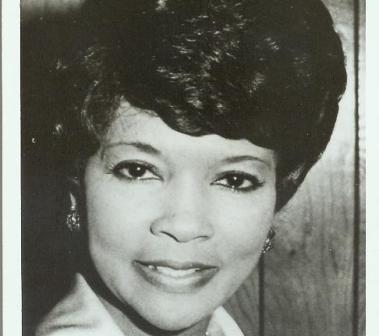 Every year, The UFCW and its members take time to remember people in our union who broke barriers, fought for justice, and paved the way for working class Americans today.
Every year, The UFCW and its members take time to remember people in our union who broke barriers, fought for justice, and paved the way for working class Americans today.
As part of our annual celebration of Black History Month, we’re looking back at beloved UFCW member Addie Wyatt’s story.
Addie Loraine Cameron, better known as Addie L. Wyatt (1924 –2012), was born in Mississippi and moved to Chicago with her family in 1930. When she was 17 years old, she married Claude S. Wyatt, Jr.
She began working in the meatpacking industry in 1941 in the canning department to pack stew in cans for the army. Due to a contract between Armour and the United Packinghouse Workers of America (UPWA), she earned more working on the packinghouse floor canning stew than she would have made working as a typist, which is what she had originally applied to be, and joined the UPWA after learning that the union did not discriminate against its members.
In 1953, she was elected vice president of UPWA Local 56. In 1954, she became the first woman president of the local, and was soon tapped to serve as an international representative. She held this position through the 1968 merger of UPWA and the Amalgamated Meat Cutters and Butcher Workmen until 1974, when she became director of the newly formed Women’s Affairs Department. In 1970s, she became the first female international vice president in the history of the Amalgamated Meat Cutters and Butcher Workmen and later served as director of its Human Rights and Women’s Affairs and Civil Rights Departments. She served as the first female African American international vice president of the UFCW after Amalgamated and the Retail Clerks International Union merged in 1979.
Addie’s work for the union as well as in her community played an integral role in the civil rights movement, and she joined Dr. Martin Luther King, Jr. in major civil rights marches, including the March on Washington, the march from Selma to Montgomery, Alabama, and the demonstration in Chicago. She was one of the founders of the Coalition of Labor Union Women, the country’s only national organization for union women. She was also a founding member of the Coalition of Black Trade Unionists and the National Organization of Women.
In 1984, Addie Wyatt retired from the labor movement as one of its highest ranked and most prominent African American and female officials. In honor of her work, she was named one of Time magazine′s Women of the Year in 1975, and one of Ebony magazine′s 100 most influential black Americans from 1980 to 1984. The Coalition of Black Trade Unionists established the Addie L. Wyatt Award in 1987. She was inducted into the Department of Labor’s Hall of Honor in 2012.
Addie’s life is a perfect example of how labor rights are civil rights. At her job, in the union, and throughout all aspects of her life, Addie fought to break barriers for women’s equality, strived to better working conditions, and campaigned for fair treatment of all people, no matter what one’s race. Addie is just one of the many UFCW examples that still inspire members today, as they march on the front lines of social justice, and spread the word about sticking together for a voice on the job.
February 2, 2015
UFCW Celebrates Black History Month
This week marks the beginning of Black History Month–a time to remember and celebrate the rich history of African Americans and the achievements of the civil rights movement.
Black History Month dates back to 1926, when historian Carter G. Woodson and other prominent African Americans dedicated the second week in February as “Negro History Week” to coincide with the birthdays of Abraham Lincoln and Frederick Douglass. In 1976, the celebration was officially recognized and expanded and every U.S. president since then has celebrated Black History Month during the month of February.
This month, the UFCW will highlight milestones in the civil rights movement—including the 50th anniversaries of the march from Selma to Montgomery and the Voting Rights Act. We will also pay tribute to African American labor leaders who fought for fair wages, dignity in the workplace, and the freedom to organize in spite of considerable barriers, and honor their significant contributions to the labor movement.
February 2, 2015
Survey Finds Popularity of “Right to Work” Decreasing
Rasmussen Reports released a national survey showing that only 35% of likely U.S. voters believe “right to work” laws are good for a state’s economy. That’s a ten point decrease from a similar study conducted in December 2012.
UFCW members have been lobbying elected officials for years on the disastrous effects of these unfair and unnecessary laws. There is still more work to be done as “right to work” battles are underway in Wisconsin, Missouri, New Mexico, Ohio, New Hampshire, Colorado, Kentucky, Montana, Pennsylvania, and West Virginia
“Right to work” laws are being pushed by corporate special interests who want to lower wages so that corporations can have even more profits and power.
In the coming weeks, UFCW members will be in state capitals across the nation to ensure that legislators take notice of this survey and oppose “right to work.”

